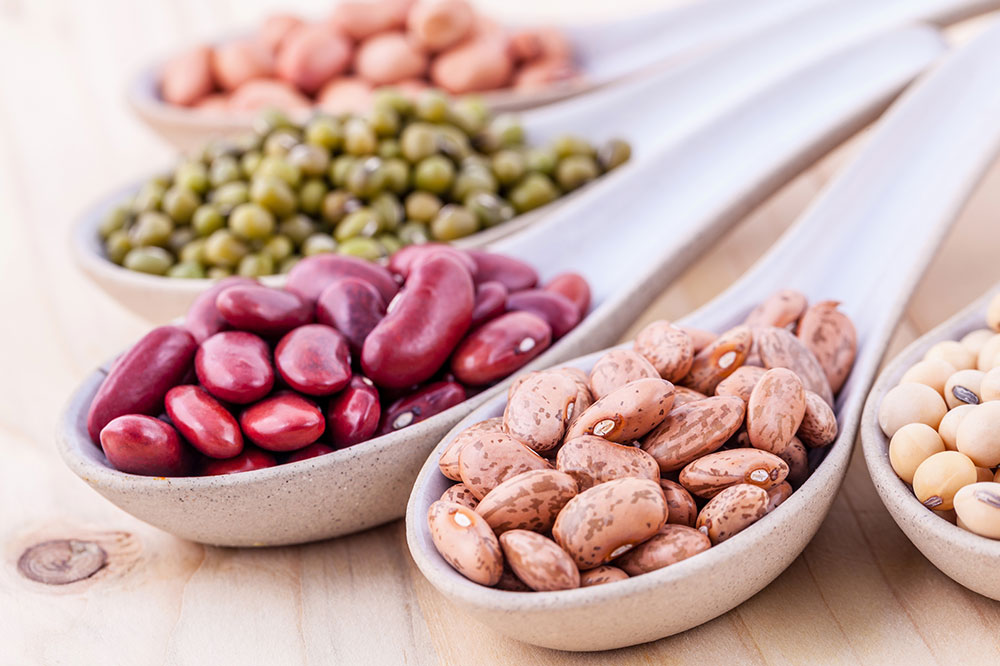Food and nutrition tips to manage osteoporosis

Osteoporosis is a medical condition that over time, weakens and makes bones porous and brittle. This increases the risk of fractures. On the positive side, osteoporosis symptoms can be managed to significantly improve the patient’s health. Several studies have suggested that certain foods and medications can be highly effective in managing osteoporosis symptoms and alleviating the resulting pain. From kale to tofu, there are many foods that can help and these are listed below.
Dark green leafy vegetables
Dark green leafy vegetables are rich in vitamin K, magnesium, and calcium, which are vital in keeping bones strong. Some of these include kale, Brussels sprouts, and spinach. One can also add dandelion, collard, turnip, and mustard to their daily food portions.
Colored veggies
Vegetables like artichoke, sweet potatoes, tomatoes, red and green peppers, and potatoes, are excellent sources of potassium, magnesium, and vitamin C. They also are high in carotenoids, which is an antioxidant that boosts bone health.
Fruits
Oranges, bananas, and papayas come with exceptional amounts of potassium that negates the buildup of acid in the bones, thus preventing any loss of calcium. Fruits rich in calcium and vitamin A, C, and K — like kiwis and figs — will also improve bone density.
Dairy products
Consume dairy products with high concentrations of calcium and vitamins, such as cheese, yogurt, milk, and more. Soy-based variants like soy milk or tofu are suitable substitutes for those who are lactose intolerant.
Seafood
Certain fish are rich in vitamin D, which is an essential nutrient to help absorb calcium naturally. Healthy seafood options include tuna, mackerel, sardines and salmon.
Legumes
Legumes like black beans, pinto beans, kidney beans, and edamame are rich in protein and fiber. These foods are the best sources to improve bone health.
Plant seeds
Plant seeds like pumpkin seeds, flax seeds, sesame seeds, and chia seeds are packed with phosphorus, magnesium, calcium, and polyunsaturated fatty acids. They are also high in Omega-3 fatty acids and fiber, which regulate cholesterol levels.
Nuts
A one-ounce serving of assorted nuts is recommended daily for adults with osteoporosis. By consuming walnuts, pecans, almonds, and pistachios, one gets the necessary nutrients like phosphorus and magnesium, which inculcate bone mass, growth, and density.
Eggs
When it comes to foods for managing osteoporosis, eggs serve as an excellent food source. It is packed with vitamin D, an essential factor to better bone health. It also stimulates the production of a calcium-binding protein that subsequently impacts how much calcium the body can absorb.
Dried foods
Apricots, raisins, and prunes are rich in boron, which is an element that aids bone growth. These dry fruits are a good substitute for those who prefer vegan food.
Foods with vitamin D
Vitamin D-rich foods can significantly benefit bone strength. But these don’t just include leafy greens. Vitamin D can be found in an assortment of bread, snacks, breakfast serials, soy milk, as well as, orange juice.
Apart from these foods, medications can also help manage the symptoms of osteoporosis:
Evenity®
Evenity® is a medication that can stimulate bone formation and reduce bone loss. Women experiencing bone problems after menopause can find this medicine effective.
Prolia®
Prolia® is another post-menopause medication that can reduce the symptoms of osteoporosis. It slows down the process of bone degradation by preventing the harmful cells from attacking healthy bones.
Fosamax
Fosamax is a bisphosphonate medication that can be consumed daily or weekly. It reduces osteoclast activity to slow down any bone breakdown.